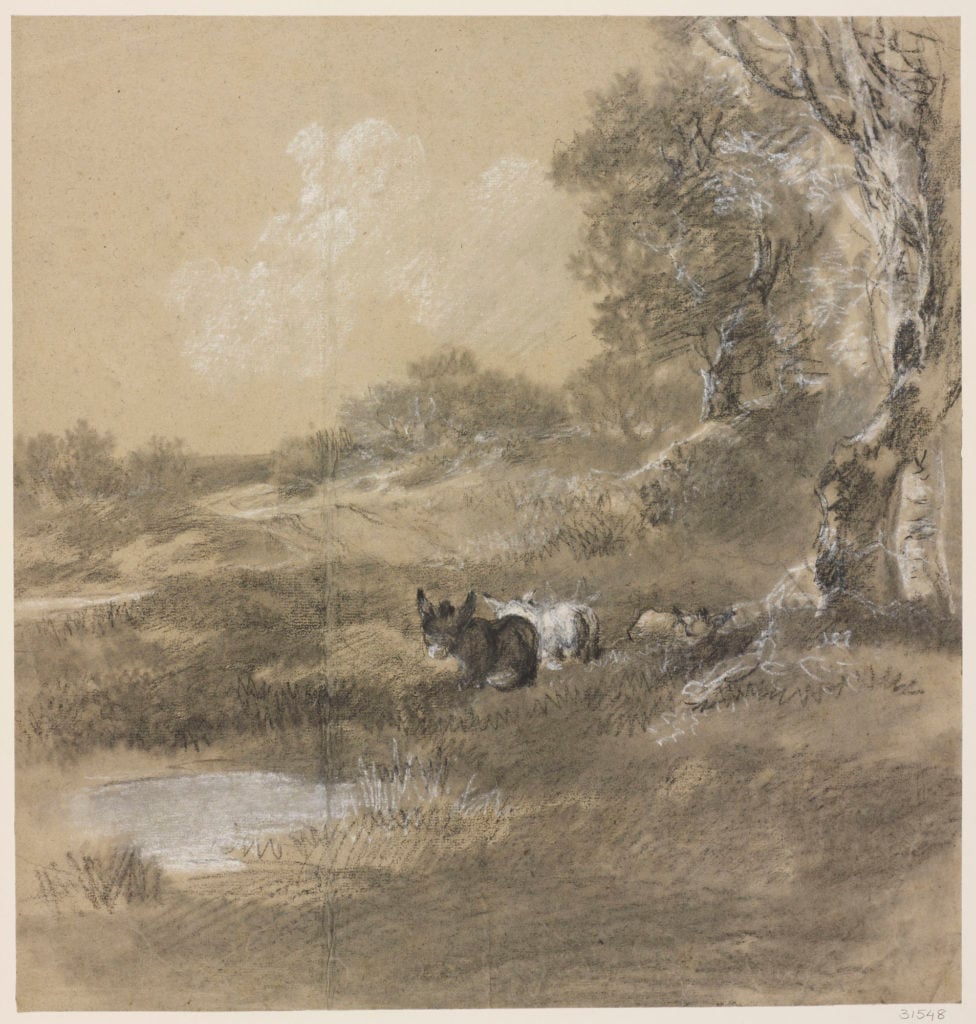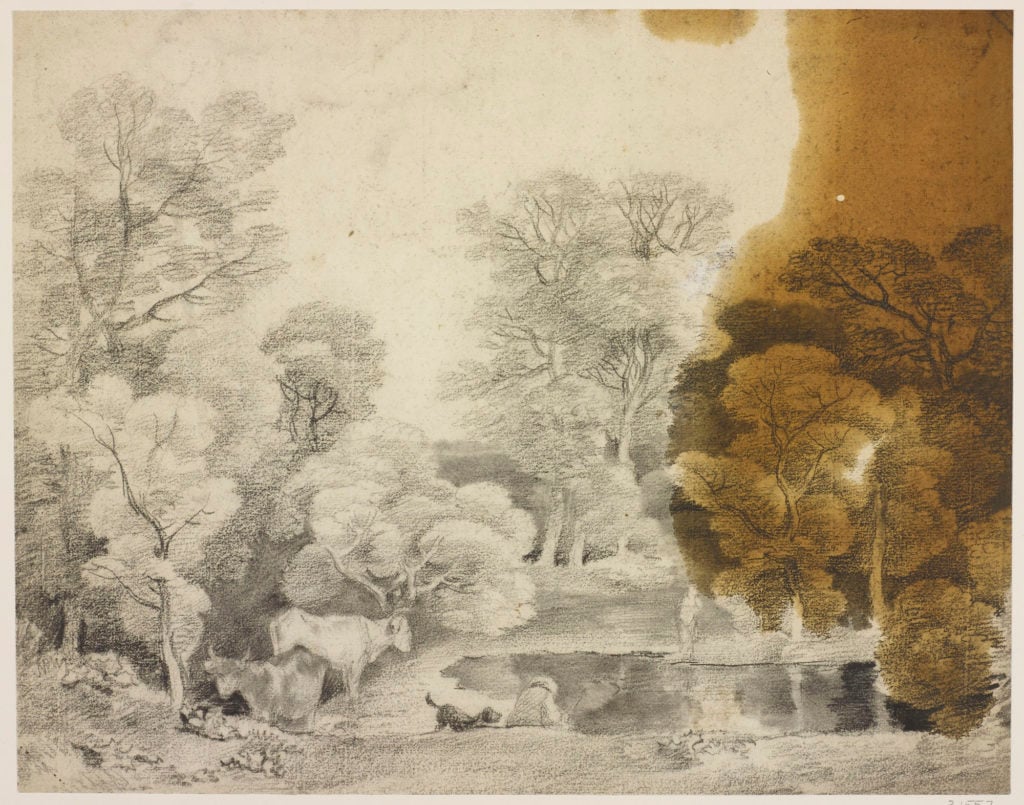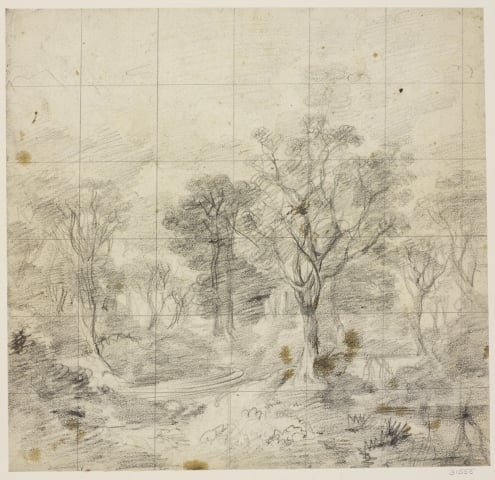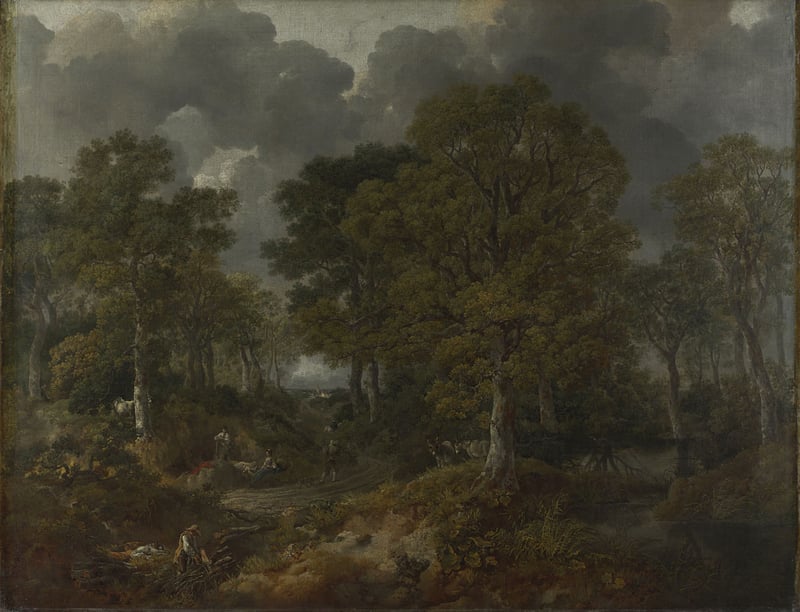Art World
Dozens of Previously Unknown Thomas Gainsborough Drawings Are Discovered in a Library Book
The 18th-century master's sketches were found in Windsor Castle's Royal Library.

The 18th-century master's sketches were found in Windsor Castle's Royal Library.

Naomi Rea

A treasure trove of drawings by artist Thomas Gainsborough have been newly discovered at Windsor Castle. The 25 black-and-white chalk sketches include depictions of country landscapes, animals, and trees, as well as a preparatory study for Gainsborough’s 1748 Cornard Wood, which currently hangs in the National Gallery.
The drawings were found in a leather-bound album of drawings misattributed to Sir Edwin Landseer. In 1874 the album was gifted to Queen Victoria, who was a fan of Landseer, best known as the architect of the iconic lion sculptures in Trafalgar Square. Since then, the Gainsborough sketches have sat on a shelf in the Print Room of the Royal Library at Windsor Castle, waiting for someone to recognize the full extent of their value.

A drawing in black chalk and stump showing trees and a lake, with cows at the water’s edge, and a man and his dog. Large oil stain to right. Courtesy
Royal Collection Trust/© Her Majesty Queen Elizabeth II 2017.
“It took years before I realized exactly what they were” said historian Lindsay Stainton, who confirmed the authorship of the sketches, speaking to BBC News.
Back in the ’90s, Stainton had recognized similarities in the drawings to the work of the celebrated 18th-century painter, but it wasn’t until she came upon a photograph of the study for Cornard Wood that she realized these sketches were not just Gainsborough-esque, but the real thing.

A black chalk drawing of a landscape, showing trees beside a road, squared for transfer in pencil. Lindsay Stainton has noted that this drawing is a squared-up study for Gainsborough’s early landscape painting of Cornard Wood, 1748, now in the National Gallery, London. Courtesy Royal Collection Trust/© Her Majesty Queen Elizabeth II 2017.

Thomas Gainsborough, Cornard Wood, near Sudbury, Suffolk (1748). Courtesy National Gallery.
In 1995, the drawings were reappraised and cataloged as “from the circle of Gainsborough or the Norwich School,” as the attribution to Landseer appeared to be “completely unfounded.”
Stainton was able to make the decisive connection to Gainsborough from the presence of the artist’s signature composition-preparation method. Gainsborough covered his sketches with a grid and lines to facilitate their transfer from small scale to the full drawing, and the study for the painting later to become known as Cornard Wood overlays the finished work almost exactly.
Further evidence pointing to Gainsborough as the artist includes stylistic similarities, the use of French and Dutch paper from the 1740s, and the oil stains that appear on many of the sketches caused by materials the artist had to hand in his studio while painting.
In response to inquiries about the monetary value of the sketches, the Royal Collection declined to comment but according to the artnet Price Database, similar sketches by the artist have previously fetched seven-figure sums, with the current record set at $2.67 million for a black-chalk study sold at Sotheby’s London in 2013.